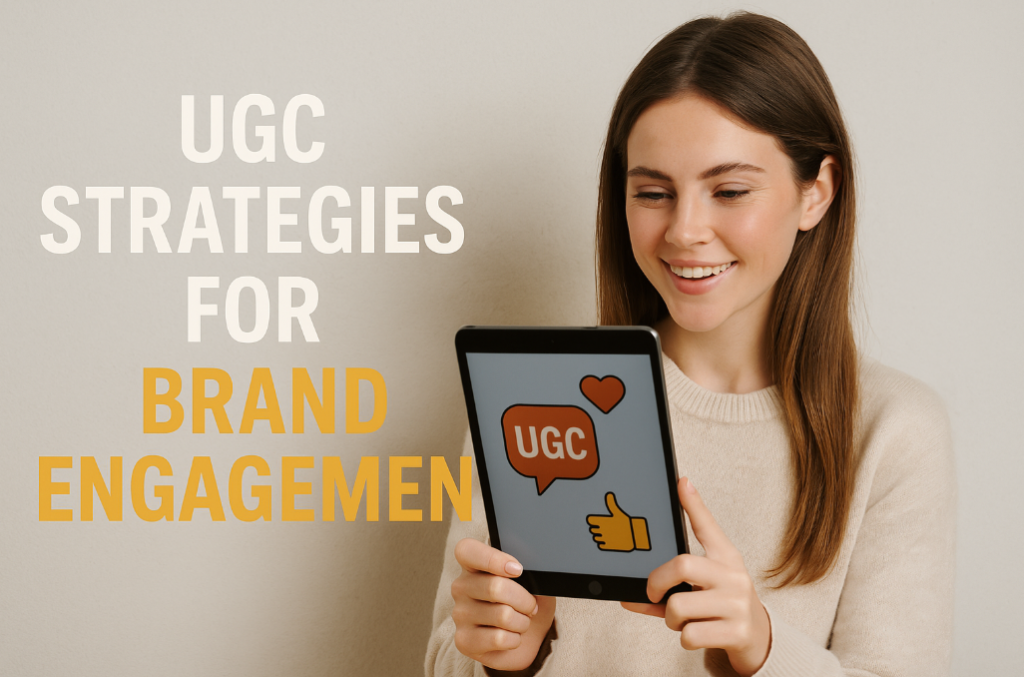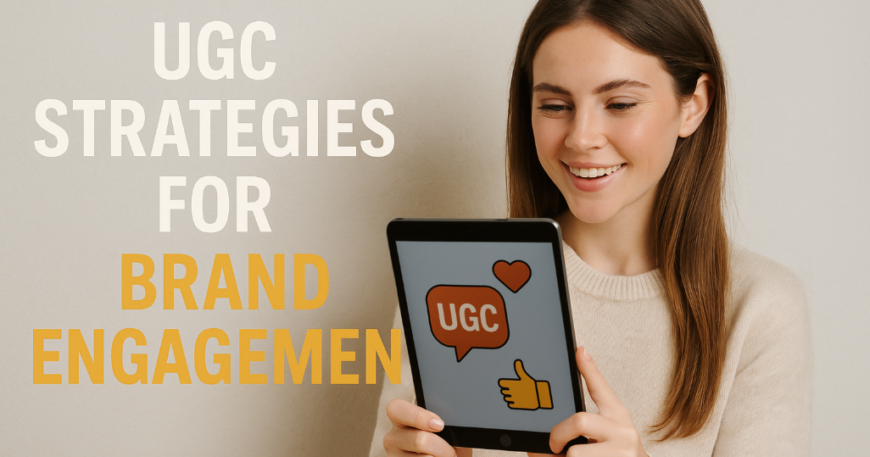
Introduction
In a world where digital noise is louder than ever, the most genuine voices often come from your customers. That’s where User-Generated Content (UGC) comes in. UGC isn’t just a trend—it’s a full-blown strategy that helps brands build trust, foster community, and amplify engagement like wildfire.
So, if you’re looking to ignite your brand’s social presence and get your audience talking, you’re in the right place.
The Power of UGC in Today’s Digital World
UGC is content created by real users—not polished, branded material. It’s raw, relatable, and real. Unlike traditional ads, UGC offers:
- Authenticity – People trust people, not logos.
- Credibility – 90% of consumers say UGC influences their buying decisions.
- Community – It creates a two-way conversation.
UGC makes your audience the hero of your brand story.
Types of UGC That Boost Engagement
Social Media Posts
Tagged photos, shoutouts, mentions—these posts scream authenticity and offer instant social proof.
Reviews and Testimonials
Product reviews and user stories build trust with prospects on the fence.
Blogs and Guest Posts
Some users are eager to write in-depth experiences. Feature them!
Videos and Reels
Short-form content from your users can go viral quicker than you think.
Memes, GIFs, and Stories
Humor and relatability = engagement goldmine.
How UGC Drives Brand Engagement
Builds Community
UGC invites your followers to be part of something bigger—your brand story.
Sparks Conversations
When people see others posting, they want to join the conversation too.
Fosters Loyalty
Featuring UGC shows appreciation. People love recognition.
Improves Conversion Rates
Seeing real people use your product makes others more likely to buy.
Best Platforms to Leverage UGC
Ideal for aesthetic UGC—photos, reels, and stories.
TikTok
Perfect for fun, engaging videos and challenges.
YouTube
For long-form, review-style or how-to UGC.
Great for groups, testimonials, and live sessions.
For B2B brands and professional endorsements.
X (Twitter)
Quick mentions, memes, and retweets can spread fast.
Creating a UGC-Friendly Brand Environment
Encouraging Participation
Ask for feedback. Prompt users to share photos using your products.
Creating Hashtags and Challenges
Make it easy and fun. #MyBrandStory or a seasonal hashtag can do wonders.
Featuring Customers on Your Platforms
Share user posts on your website, social handles, or emails.
UGC Campaign Ideas That Actually Work
Contests and Giveaways
“Share your story to win” type contests get content rolling in.
Customer Spotlight Series
Feature a customer weekly or monthly. Humanize your brand.
Product Launch Buzz Campaign
Get your early buyers to share their unboxing experiences.
Seasonal and Festive Themes
Encourage content around holidays, events, or trending topics.
Tools to Curate and Manage UGC
TINT
Helps gather and display UGC across your site and social.
Yotpo
Amazing for e-commerce reviews and customer photos.
Stackla
AI-powered UGC platform that scales content.
Later
Great for scheduling and repurposing UGC posts.
Canva and CapCut
Edit user content easily and make it match your brand style.
Legal and Ethical Considerations
Getting Permission
Always ask before reposting. A DM works wonders.
Giving Credit
Tag and thank contributors. It builds goodwill.
Content Moderation
Filter for hate speech, off-brand content, and trolls.
Measuring the Impact of UGC
Engagement Metrics
Track likes, shares, comments, saves—your basics.
ROI Tracking
Compare UGC campaigns with other ad campaigns. UGC often wins.
Sentiment Analysis
Use tools to monitor brand perception and emotional tone.

Common Mistakes to Avoid
Ignoring Negative Feedback
UGC is not just rainbows. Address criticism openly.
Failing to Engage with Contributors
Reply. React. Appreciate.
Over-commercialization
Let users tell their stories. Don’t over-edit or script.
Real-World Examples of UGC Success
Coca-Cola’s “Share a Coke”
People shared personalized bottles all over social media. A UGC classic.
GoPro’s User Footage Strategy
Most of their content? From actual users. Authenticity level: 100.
Airbnb’s Storytelling Campaign
Users share unique travel stories—emotion-driven and powerful.
How to Encourage UGC Without Being Pushy
Subtle Prompts
Instead of “Share now!”, try “We’d love to see your experience.”
Rewards Without Pressure
Offer small incentives—discounts, features, shoutouts.
Integrating UGC into Your Overall Strategy
Cross-channel Campaigns
Repurpose a TikTok UGC for Instagram and email marketing.
Syncing with Influencer Marketing
Pair UGC with influencer reviews for maximum credibility.
Aligning with Brand Values
Ensure the content reflects your mission and tone.
Conclusion
UGC isn’t just a marketing hack—it’s a movement. It’s the digital version of word-of-mouth, and when done right, it can turn your customers into your biggest brand ambassadors. Whether you’re a startup or an enterprise, integrating UGC into your brand strategy can take your engagement to a whole new level.
So, let your audience tell your story. Because in today’s world, that’s what people listen to.
FAQs
1. What’s the best type of UGC for new brands?
Social media posts and reviews are great starting points. They’re easy to collect and highly impactful.
2. How do I legally use user-generated content?
Always ask for permission and give proper credit. Use DMs or emails to obtain written consent.
3. Can UGC hurt my brand?
Only if it’s unmanaged. Always monitor and moderate submissions to maintain brand safety.
4. Is UGC better than influencer content?
It depends. UGC is more authentic and cost-effective, while influencer content has broader reach.
5. How often should I run a UGC campaign?
Start with one every quarter. Adapt based on response and engagement levels.


